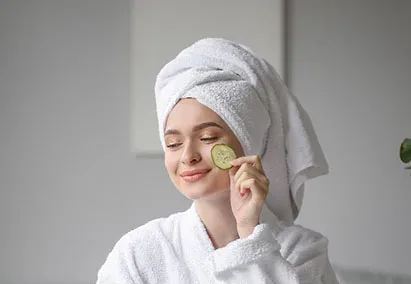
Alternative medicine enthusiasts have subscribed to the power of essential oils for years. But with their increasing availability (and claimed health benefits), they’re going mainstream.
What are essential oils?
Essential oils are concentrated plant extracts.
Plants are made of structural materials and phytochemicals. These chemicals have properties that not only benefit the plant but benefit people, too.
It takes a tremendous amount of plant material to make essential oils, which can make some of them expensive.
You can difuse them, which is a type of aromatherapy, roll them directly on your skin or ingest them, based on your needs.
Benefits of essential oils
Essential oils can be used in aromatherapy, a kind of complementary medicine that uses smell to improve your health or applied topically to the skin.
Studies have shown that essential oils may help:
- Boost mood.
- Improve job performance through reduced stress and increased attentiveness.
- Improve sleep.
- Kill bacteria, funguses and viruses.
- Reduce anxiety and pain.
- Reduce inflammation.
- Reduce nausea.
- Relieve headaches.
Examples of essential oils:
- Lavender oil can help with stress, pain and sleep.
- Tea tree oil as an antiseptic, antimicrobial or antifungal.
- Frankincense oil – Known as the “king of oils,” frankincense can help with inflammation, mood and sleep.
- Peppermint oil can ease headaches, support memory and digestion.
- Eucalyptus oil soothes a stuffed-up nose by opening your nasal passages so you can breathe easier.
- Lemon oil can help reduce anxiety and depression.
- Rosemary oil also has some additional benefits like improving brain function, promoting hair growth, reducing pain and stress.
Sources: Health Cleveland Clinic
Recent Posts
Related Articles
Non-verbal communication
A substantial portion of our communication is nonverbal. In fact, some researchers...
June 19, 2023Stretch marks – causes and prevention
Stretch marks (striae) are discolored, slightly sunken scar-like lines in your skin....
June 19, 2023Compassion vs Empathy
It’s easy to use compassion and empathy as synonyms, but there are...
June 19, 2023How to build a habit in 5 steps
People with good habits rarely need to resist the temptation to laze...
June 19, 2023

























Leave a comment